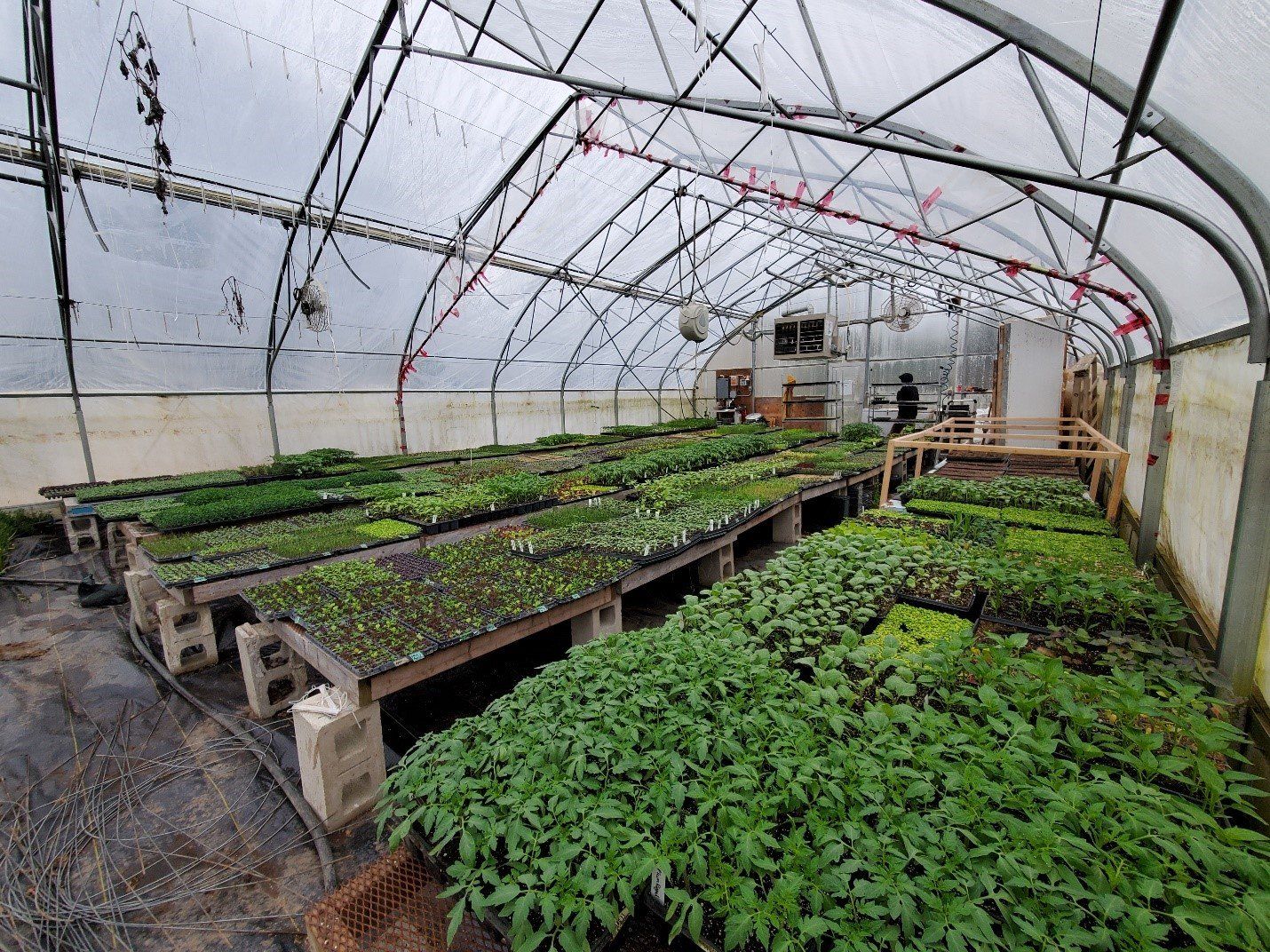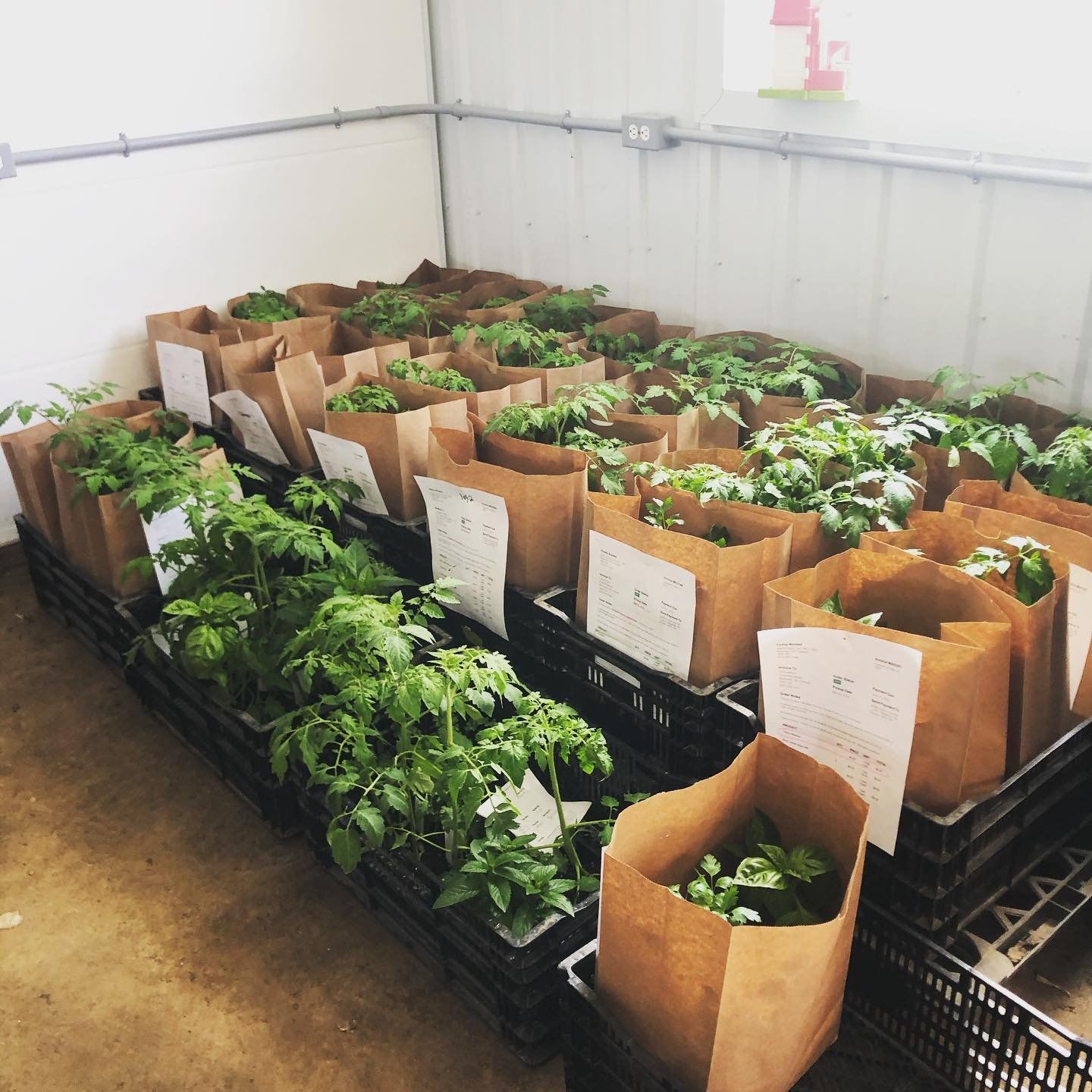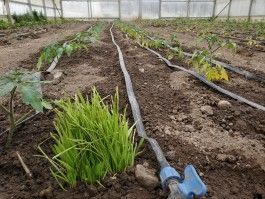May 13, 2021
The Lettuce Rejoice!
Firmly Rooted Farm's Newsletter for their Veggie Loving Farm-ily

On the Farm: Say “Hello” to Our Little Friends
SEEDLING SALE NOTE: I, Tamara, am working hard to get the seedling sale up an running. I will launch it either this evening or tomorrow morning and will send you an email with a link when I've got it open. You won't be able to add seedlings during your customization as I previously stated.
Now onto the newsletter!
Hello All,
Exciting things are afoot at Firmly Rooted Farm. We are getting right into the swing of spring, having spent much of the past week planting a million things. Two out of four of the greenhouses have been converted to hot crops; tomatoes, celery, basil, companion flowers, and many other good green things have found new homes. However, with good green things comes bad bug beings, but one aspect of our farm plan we are excited to be expanding this year is our Integrated Pest Management. There are a few major aspects in our plan of attack when it comes to pests such as aphids and leek moth.
Of course, there’s the tried and true strategy; using cover. We cover many of our most vulnerable crops with row cover or insect netting, to provide a barrier preventing the insects from establishing a home. This is our main plan when it comes to addressing carrot rust fly, which ravished many of our storage carrots last fall. But there are instances where it doesn’t make sense to use cover; perhaps the cover hinders growth and pollination, or the plants will grow to be too large for cover to be practical. So we move on to other strategies. This year we are using far more beneficial insects, and we are very excited about it. Personally, I’m always keen to learn something new, plus biocontrol is pretty cool.
Last year, we almost lost our entire pepper crop to aphids. These sap-sucking pests exhausted the crops by extracting nutrients from plant tissue. To ensure we don’t have the same problem this year, we have established Aphidius colemani in our pepper greenhouse. A. colemani are an insidious sounding small parasitic wasp that targets aphids by laying their eggs inside an aphid body. The eggs hatch and begin to consume the aphid from the inside out. What a way to go. If you look at the feature photo for this week, you will see some barley grass among newly planted tomatoes. The grass is home to a grass-specific aphid, which will provide a host for A. colemani eggs while we wait for the vegetable devouring aphids to show up. We’ve also utilized lacewing flies, whose larvae revel in a feast of soft aphid bodies.
Last year we also had a problem with the leek moth, an invasive species native to Europe whose larvae “mine” several alliums, with an affinity for leeks. This year we’re on the offensive, eventually releasing Trichogramma brassicae, another parasitic wasp that lays its eggs inside the eggs of several butterfly and moth species. To limit our effect on native species, we have set pheromone traps to establish when leek moths arrive and will release T. brassicae at the most appropriate time for effective leek moth intervention!
An additional aspect of our plan of attack includes growing companion plants such as nasturtium and sweet alyssum flowers. Nasturtiums attract beneficials such as helpful pollinators, as does alyssum. Nasturtiums also act as an attractant for pests, enticing aphids and whitefly, deterring these vexations from other crops. Alyssum attracts a variety of beneficial predatory insects as well. Additionally, both provide ground cover, shading the soil to hold in moisture and reduce weed pressure.
The beautiful thing about insect biocontrol is that it works with Mother Nature, reducing our chemical dependency and environmental impact. Biocontrol truly helps one realize how well nature has provided all beings with necessary roles. A pest isn’t a pest to Mother Nature, it simply serves its role. Parasitic wasps provide a countermeasure, allowing nature to exist in balance. Plant or insect, every being has its place, and one could not exist without the other.
Kitchen Corner

A quintessential spring vegetable, hakurei turnips are often enjoyed raw. But I also enjoy them cooked and with sugar and butter (which go well with a shockingly dangerous number of vegetables). As usual, however, I will recommend pickling or fermenting them in a brine, to provide a bit of funk to your salads!
Kitchen Clean-Up
Harvie University provides a helpful guide to answering all your farm share questions. If you ever need to reschedule or change your pickup location, find some helpful information here. And as always, reach out if you ever need some Harvie guidance!
That’s all for now folks, happy eating until next time!
Farmer Erika




